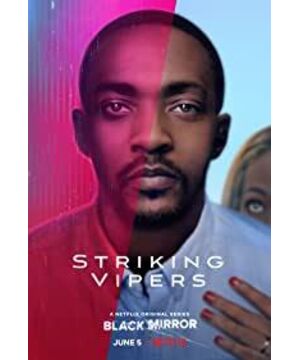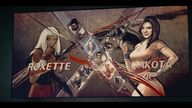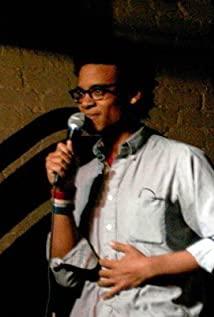Story 1 Striking Vipers (also known as "Does cheating in games count as cheating? And am I gay who only like men online? Online, etc.")
Newer than it looks at first glance. The trick is this: they confirm that they don't feel that way at all about each other in real life. The real me is one person, and the me in the game is another person. Two different personalities naturally appear in the same consciousness.
This can't simply be seen as finesse, or "hidden personality" or something, I prefer to see it as "different possibilities of the self".
I have a personality, a stable personality, but if the environment I'm in, my own situation completely changes, will I still be the personality I'm showing? As a woman, my "self" with family responsibilities and a normal job is the same as my "self" as a little alien monster who fights each other to the death every day in the magical world? "I" is kind, timid, quiet, basically honest, likes the opposite sex, and hates logical thinking. Are these traits fixed? As long as I'm still thinking with the same consciousness, will I always be like this? Or if one of the personalities has changed, must it be said that I am "no longer me", that I have "discovered my true self", or that I have "split personality"?
The "I" of the little alien monster is bloodthirsty, active, hates teamwork, energetic, and emotionally unstable. This is me too, the same me. The "self" is generally considered to be a basic and harmonious personality system, but the self may be just a slightly characteristic thinking tool, which is constantly running in and eventually emerges under a specific body/nervous system, family environment, social environment, and various experiences. loose stable state. And the full simulation game provides this tool with conditions and space to display a variety of possibilities. Maybe one day we will all get used to this diversity of self, switch freely between different worlds, and no longer be trapped in "Who am I?" "This ancient cage.
Story 2 Smithereens (also known as "I peeked at my phone and killed my wife, no matter what I think, it's the phone's fault, not the app")
The theme of this story is a little unclear, probably in the era of big data, the app knows you better than your mother? (Even the police uncle is willing to give in. FBI warning)
The story is quite compact, limited to a hijacking case, and the ending of the male protagonist who wanted to commit suicide but was shot to death is also a little ironic, but the elements of the whole article are too chaotic and not focused on one theme. For example, the whole article is discussing app addiction and exposing network information, but the death of the male protagonist as the finale has nothing to do with the Internet, just because the police are too far away to see the basic relationship between the male protagonist and the little brother. , a misunderstanding (miserable). Just making up a misunderstanding between the male protagonist and the police because the onlookers angered the male protagonist or shamelessly spread rumors is not too off topic. Another example is that the cause of the whole story is that the male protagonist is addicted to the app, but the process of solving the case focuses on how terrible it is for the app to collect personal information. In the climax part of the app boss, he justly criticized the app's dopamine system. . It's also a feeling of being out of set, with a hammer in the east and a stick in the west, and the fight is very unfocused.
Story 3 Rachel, Jack and Ashley, Too
Black Mirror is really addicted to the concept of copy consciousness, and one day it will come up with a "100 ways to use copy consciousness": copy consciousness can help you be a caring housekeeper, can be locked up as a slave, and locked up as an exhibit , save it as a souvenir, put it in a doll to pretend (?) an intelligent robot, and when necessary, it can also run to help you euthanize (Khan). . .
Like the previous episode, this story has too many elements. The black technologies involved include: replicating consciousness and injecting it into intelligent robots, using technology to limit brain function, using technology to adjust personality, extracting the thinking information of comatose people, and using replica consciousness + holographic projection to create perfect artists. After reading it, I don't know which technology to reflect on, I can only sigh with emotion: her aunt is good or bad.
===========
Black Mirror initially attracted me a few points: the concept is novel, it is close to life (it is indeed possible), the story structure is concise and concentrated, and it focuses on the human nature / philosophical thinking brought by new technology. By this season, I can hardly see the shadows of these. Thanks to the amazing and thinking I have brought, it is time to discover the next drama full of wonderful ideas.
View more about Striking Vipers reviews









